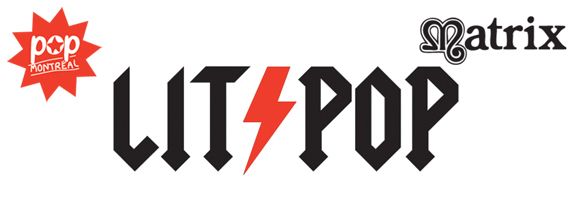P&W-supported poets Jon Sands, Adam Falkner, and Samantha Thornhill recently performed at North Country Community College in Saranac Lake, New York, as part of their "Poets in Unexpected Places" project. Sands, a poet, essayist, and author of The New Clean (Write Bloody Publishing, 2011), blogs about the experience.
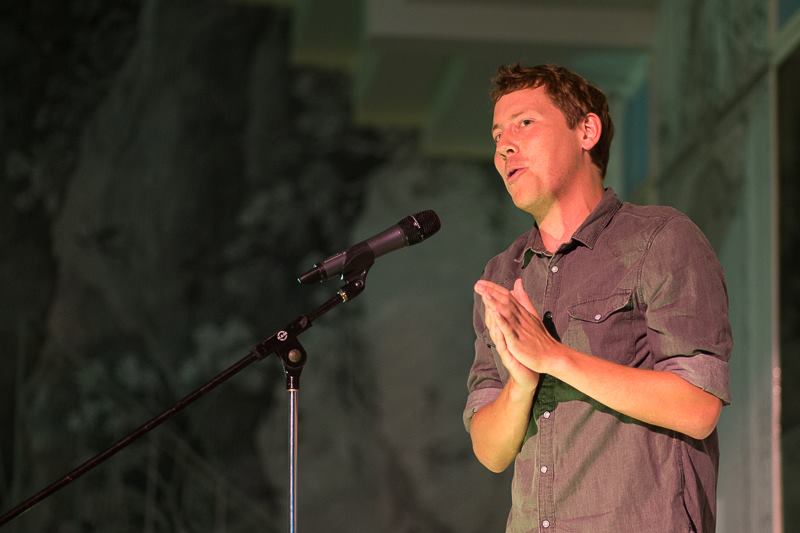 In 2010 Adam Falkner, Samantha Thornhill, and I cofounded “Poets in Unexpected Places” as a public art experiment. (We have since been joined, as curators, by Elana Bell and Syreeta McFadden.) And for one day in National Poetry Month, Adam, Samantha, and I had "free poetic reign" over the campus of North Country Community College (NCCC).
In 2010 Adam Falkner, Samantha Thornhill, and I cofounded “Poets in Unexpected Places” as a public art experiment. (We have since been joined, as curators, by Elana Bell and Syreeta McFadden.) And for one day in National Poetry Month, Adam, Samantha, and I had "free poetic reign" over the campus of North Country Community College (NCCC).
For over three years, we’ve staged seemingly impromptu poetry installations in public spaces throughout New York City, from the Q train to Times Square to Brooklyn Laundromats to Whole Foods—some sanctioned, some not. The goals are: 1) to blur the line between the artist and the audience 2) to bring poems back into a public sphere that provides the muse for so many of them 3) to challenge a creative public landscape largely curated by corporations, and 4) to acknowledge how many stories are inside every person you see, anywhere.
We have a fluid membership of writers who share their own work, or that of authors they love. You’re liable to hear Lucille Clifton, Audre Lorde, or Jack Gilbert reverberating off the subway walls.
Poets & Writers, the Adirondack Center for Writing, and NCCC brought us not just to English seminars on the NCCC campus, but to calculus classes, cafeterias, and chemistry labs (where Samantha performed her “Ode to an Apron” wearing an apron and safety goggles). I taught a midday writing workshop, and one student, Glen, a veteran and self-proclaimed “macho guy,” wrote a heartbreaking poem about one of his fellow soldiers, then joined us for the afternoon to read it aloud.
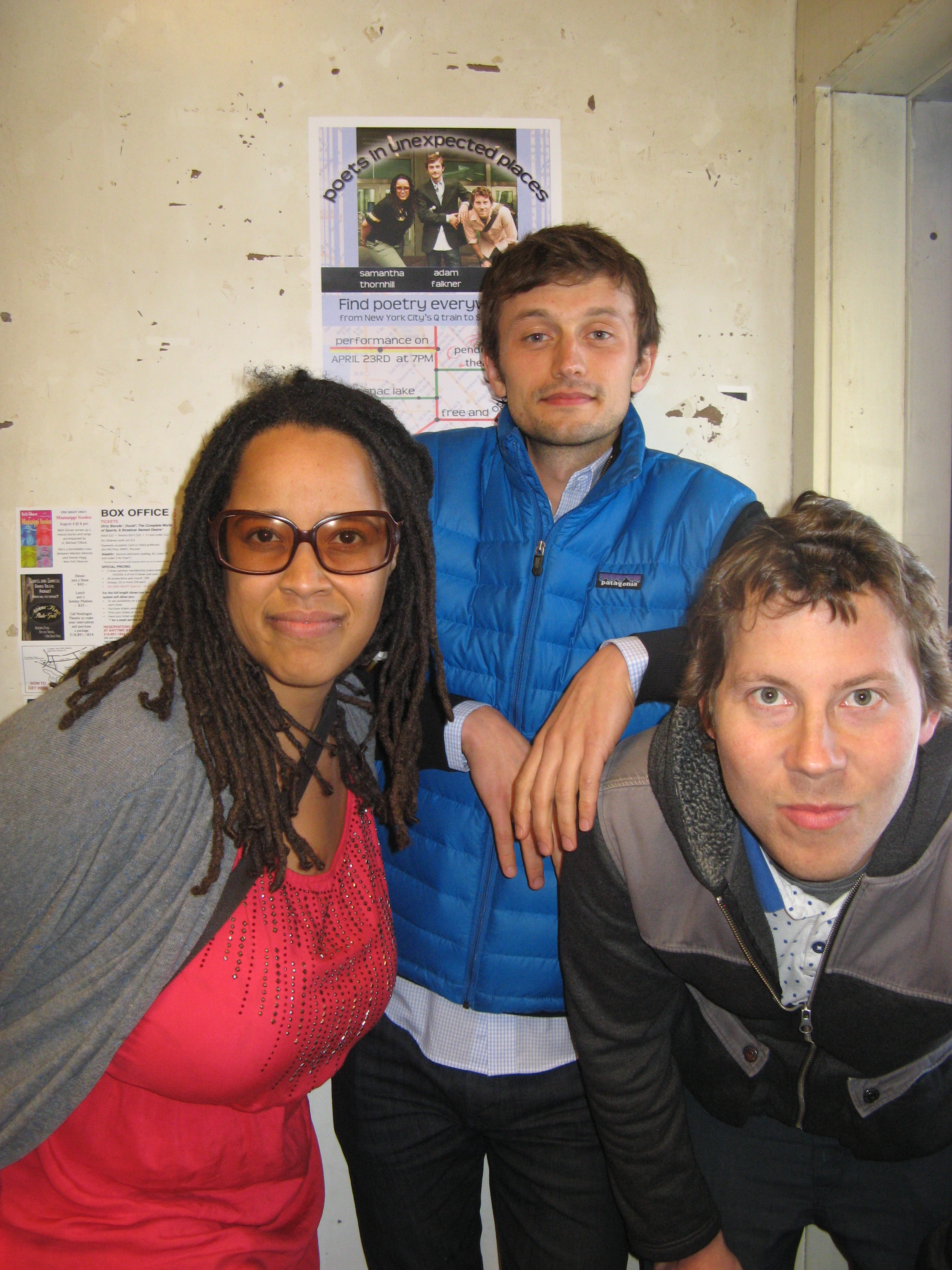 We stormed into something like forty classrooms that day with no introduction or apology. This gave the night’s culminating reading at the Pendragon Theater a Pied Piper-type feel. We had been gathering students, faculty, and staff throughout the day, from the math major to the cafeteria worker. After poetry showed up for them, they showed up for poetry. The workshop participants kicked off the night for an intergenerational audience of about seventy-five.
We stormed into something like forty classrooms that day with no introduction or apology. This gave the night’s culminating reading at the Pendragon Theater a Pied Piper-type feel. We had been gathering students, faculty, and staff throughout the day, from the math major to the cafeteria worker. After poetry showed up for them, they showed up for poetry. The workshop participants kicked off the night for an intergenerational audience of about seventy-five.
Then, with three chairs and a keyboard, we had a poetry show that could just as easily have taken place in Adam’s living room in Fort Greene, Brooklyn. We shared the stories that make us who we are, from my poems that celebrate and mourn my high school days to Adam’s poem “War in Baltimore,” a precise, hilarious, and sorrowed tale of teacher-student interaction. Samantha read her epic “Ode to Odetta” while Adam pulled bluesy notes out of the keyboard.
We stayed after for nearly an hour swapping stories with audience members. One young woman approached with tears in her eyes in response to Samantha’s elegy for a German Shepherd. She too was bitten by a dog who was subsequently euthanized. And this is the point: the hidden connections unlocked through poetry, regardless of whether it’s the Q train platform or a stage upstate. It’s the whisper in the parking lot, if only to yourself: "Damn. Me too. Now...."
Photos: Top: Jon Sands. Bottom, from left: Samantha Thornhill, Adam Falkner, Jon Sands. Credit: Nathalie Thille.
Support for Readings/Workshops in New York City is provided, in part, by public funds from the New York State Council on the Arts and the New York City Department of Cultural Affairs, with additional support from the Louis & Anne Abrons Foundation, the Axe-Houghton Foundation, The Cowles Charitable Trust, the Abbey K. Starr Charitable Trust, and the Friends of Poets & Writers.





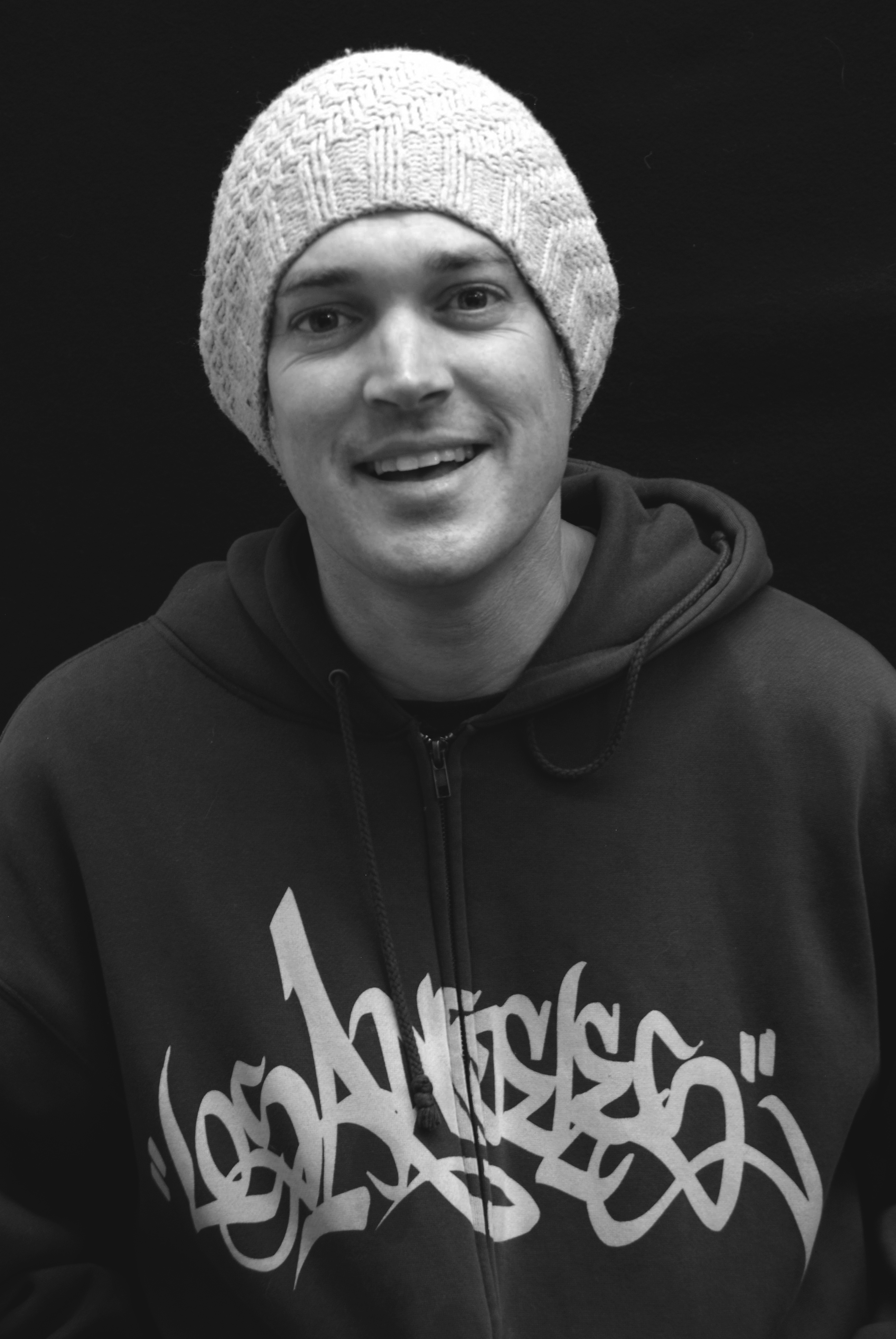 For the fifth consecutive summer I taught my Words Spoken poetry workshop at 826LA in the Northeast L.A. neighborhood of Echo Park. We had twenty diverse teens from Downtown, Historic Filipinotown, Silver Lake, Koreatown, Mt. Washington, and South Pasadena. The combination of 826’s ambience and the earnest personalities of the group made for an explosive week of poetry and community building. The writers ranged from twelve to eighteen, plus a few college students who made guest appearances. Close to a third of the writers were returning students, adding to the group camaraderie.
For the fifth consecutive summer I taught my Words Spoken poetry workshop at 826LA in the Northeast L.A. neighborhood of Echo Park. We had twenty diverse teens from Downtown, Historic Filipinotown, Silver Lake, Koreatown, Mt. Washington, and South Pasadena. The combination of 826’s ambience and the earnest personalities of the group made for an explosive week of poetry and community building. The writers ranged from twelve to eighteen, plus a few college students who made guest appearances. Close to a third of the writers were returning students, adding to the group camaraderie. 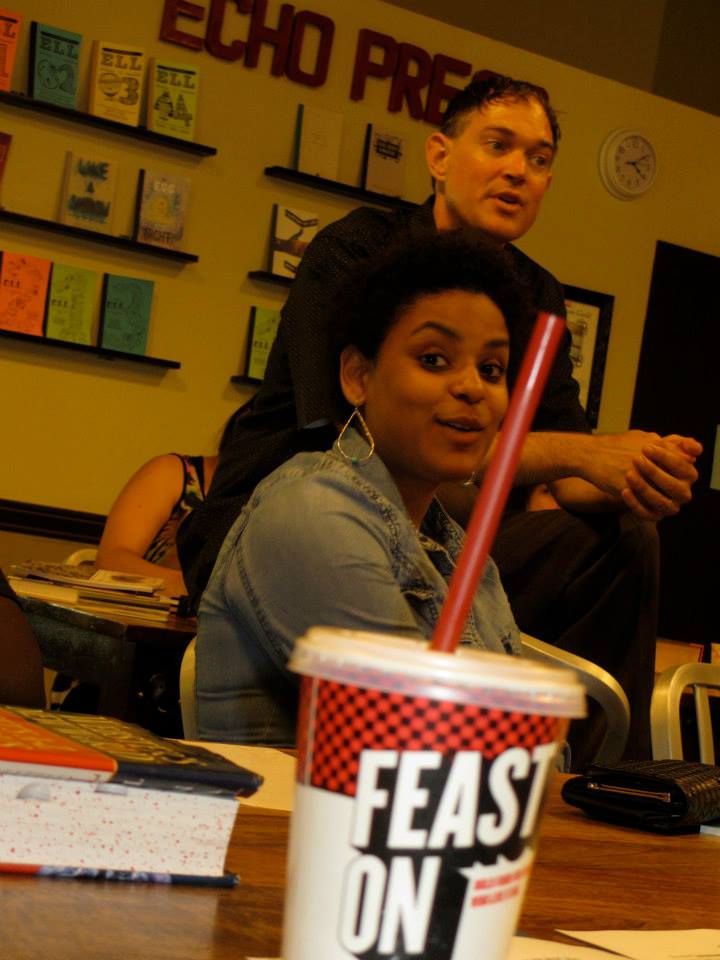 After five summers at 826LA, I have witnessed dozens of students become empowered when writing poems about their lives, families, and neighborhoods. Creative writing, according to the theorist Lester Faigley, allows students to “use narratives to explore the politics of location.” Several of the poets memorized their work, adding even deeper personal meaning to the experience.
After five summers at 826LA, I have witnessed dozens of students become empowered when writing poems about their lives, families, and neighborhoods. Creative writing, according to the theorist Lester Faigley, allows students to “use narratives to explore the politics of location.” Several of the poets memorized their work, adding even deeper personal meaning to the experience. 
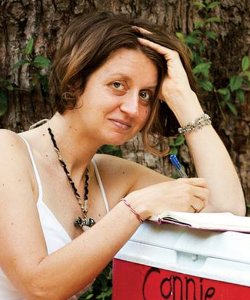
 In 2010 Adam Falkner, Samantha Thornhill, and I cofounded
In 2010 Adam Falkner, Samantha Thornhill, and I cofounded  We
We 